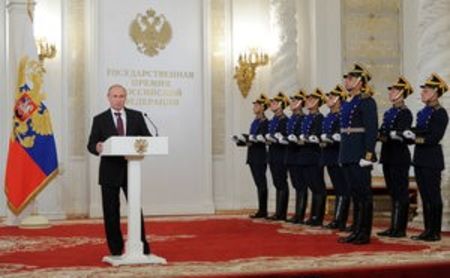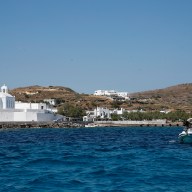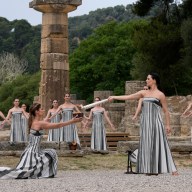By Denis Dyomkin and Gabriela Baczynska
MOSCOW/BRUSSELS (Reuters) – Russian President Vladimir Putin and European Commission President Jean-Claude Juncker will talk about sanctions and energy projects when they meet in St Petersburg this week, Kremlin aide Yuri Ushakov told reporters. Junker’s’ trip to Russia – his first as the head of the European Union’s executive – comes at a time when the bloc is starting to look to engage more with Moscow after two years of sanctions over the Kremlin’s role in the conflict in Ukraine. “The subject of sanctions will be raised, without doubt … Probably Juncker will say something on that subject. Although we ourselves are not raising the subject of lifting of sanctions since it was not us that introduced them … When they are ready do that we will welcome that, without doubt and will respond by lifting (our counter-sanctions),” Ushakov said. “We expect there will be discussion about Nord Stream-2, the prospects for renewing our energy dialogue with the EU, that’s natural,” he told reporters.
The 28-strong EU is next week expected to extend its energy, financial and defence sanctions on Russia until the end of the year. Diplomats say, however, a review of the EU policy on the conflict in Ukraine – including the sanctions – is looming in the second half of the year. Juncker will meet Putin on June 16 at the St Petersburg International Economic Forum.
An official in Brussels said Juncker would highlight areas in which the bloc thinks Russia is “misbehaving”, but that his trip was meant to show the EU could engage more with Moscow should the Kremlin change its game on issues from the conflict in Ukraine – where more than 9,000 people were killed – to what the West sees as the Kremlin’s propaganda war against it. Juncker’s visit would be the latest in an increasing number of high-level contacts between the West and Russia after a period of relative isolation over Ukraine.
“It’s all aimed at getting them into the mode of ‘Let’s do something together’,” the EU official said.
EU first imposed sanctions on Russia after the Kremlin annexed the Crimean peninsula from Ukraine in March 2014, and then stepped them up as pro-Russian rebels took up arms against Kiev troops in eastern part of the country. Moscow backs the rebels but denies driving the revolt, which is still simmering, arming the militias in east Ukraine or providing them with money. The West says multiple Russian operatives, weapons and advisers have been active in the conflict. A peace plan for east Ukraine, brokered by Germany and France, has all but stalled, with Kiev and Moscow trading blame for failing to deliver on their commitments.
Under the plan, Kiev should organise local elections in the eastern Ukraine region of Donbass, Moscow should help Ukraine regain control over its border with Russia and all sides of the conflict should withdraw heavy arms from the area. (Additional reporting by Paul Taylor in Brussels, Writing by Christian Lowe and Gabriela Baczynska; Editing by Alison Williams)
Putin, Juncker to talks sanctions and energy: Kremlin

By Denis Dyomkin and Gabriela Baczynska












